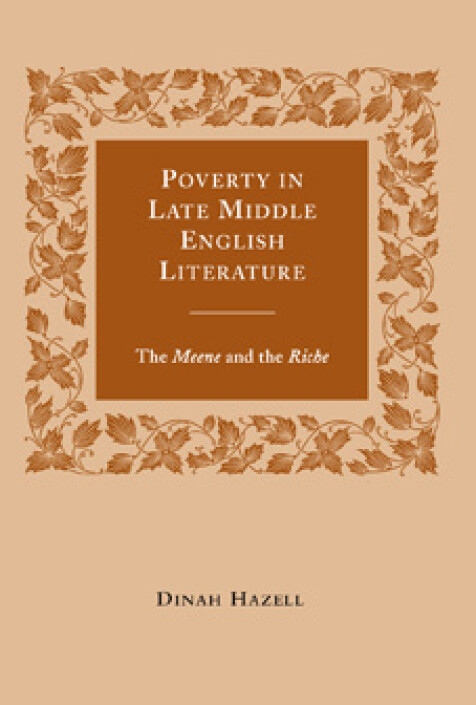Poverty in late Middle English literature
The meene and the riche
Dinah Hazell
Studies of medieval poverty tend to focus on a few works, particularly Piers Plowman and related texts, and on the indigent and rural poor. This book presents a comprehensive view of poverty at different social levels, from aristocrat to pauper, and the way in which poverty is employed as a topos to reflect social and moral concerns. The literary works, primarily from the fourteenth century and set within a cultural/historical context, represent a broad range of authors and genres, including romance, chronicle, satire, complaint, homily, hagiography, treatise, and drama, and include both well- and lesser-known pieces. There is a strong focus on the historical and literary solutions to poverty, as well as factors that influenced the complex and often conflicting attitudes towards the poor.
Dinah Hazell, an independent scholar, has published articles and designed courses taught at San Francisco State University, where she has been a guest lecturer. She is developer and co-editor of Medieval Forum, an online literary journal.
This book is part of the Dublin Studies in Medieval and Renaissance Literature series (John Scattergood, series editor). Other titles in this series include: Tony Corbett, the laity, the church and the mystery plays: a drama of belonging; Eiléan Ní Chuilleanáin & John Flood, Heresy and orthodoxy in Early English Literature, 1350–1680; and Carol J. Harvey, Medieval French miracle plays: seven wrongly accused women.

